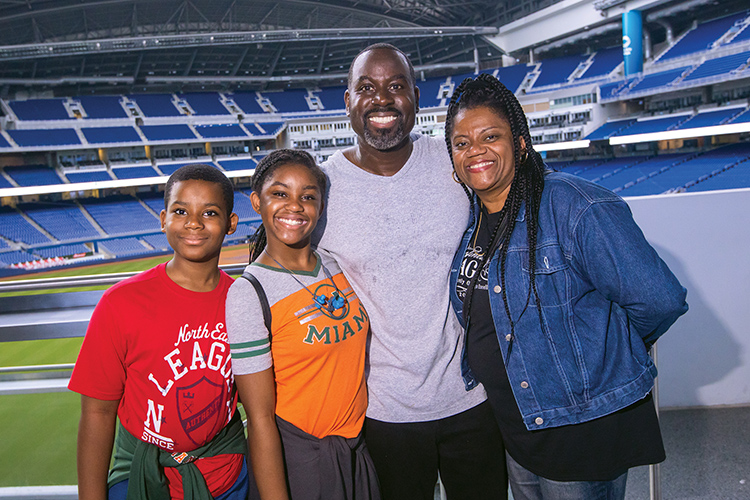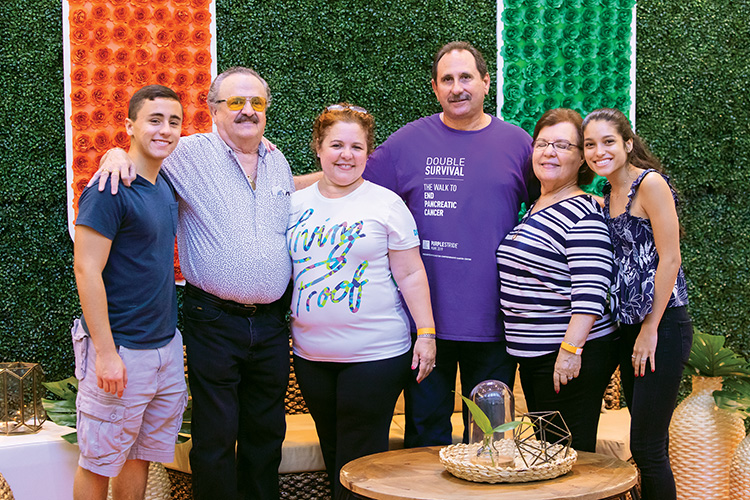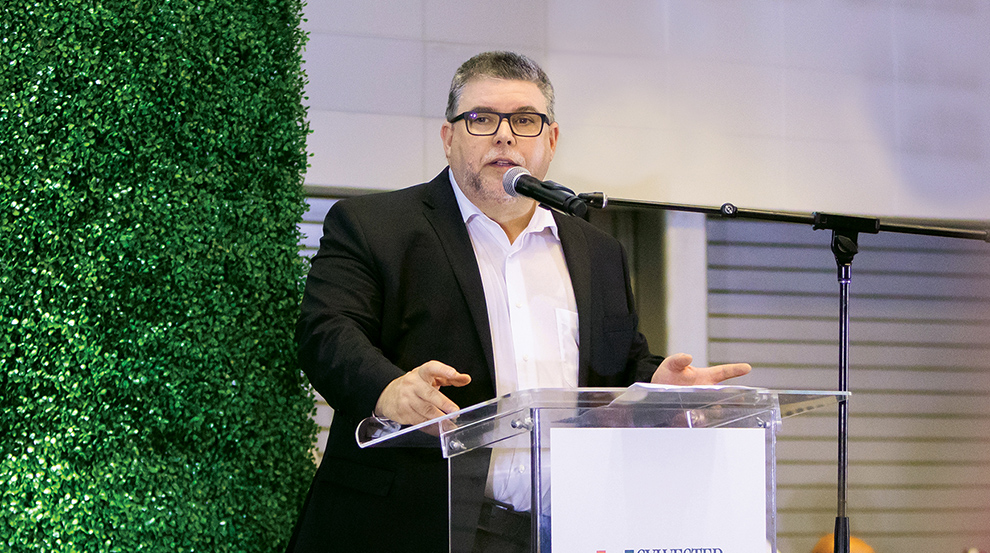Helping Cancer Survivors in Transition
Sylvester Comprehensive Cancer Center leads a survivorship program that currently serves more than 750 adult patients. Breast, colorectal, and gynecological cancers are among the most common diagnoses.
Frank J. Penedo, Ph.D., professor of psychology and medicine, and associate director for Cancer Survivorship and Translational Behavioral Sciences, has been interested in cancer survivorship for more than two decades.
“With unprecedented growth in the number of cancer survivors due to advances in early detection and treatment, a major objective is to help them live their best possible lives,” Dr. Penedo said.
Dr. Penedo’s vision for the survivorship program at Sylvester includes:
- Collaboration among clinicians and scientists across multiple disciplines to foster exceptional cancer survivorship care and research
- Implementation of evidence-based, state-of-the- art survivorship care that is informed by the latest research
- Provision of integrated multidisciplinary services across the University of Miami Health System to promote continuity of comprehensive care and avoid fragmentation of services
Benefits of Cancer Survivorship Care

A 2005 report from the National Academy of Sciences highlighted the need for coordinated and comprehensive care for patients, following their completion of primary cancer treatment. The report stated that care should effectively address physical, psychosocial, and financial concerns. It also recognized that after treatment, many survivors were “lost in transition.”
“It is a time where they need the most direction. Our cancer survivorship program is tailored to meet the needs of each individual patient and keep them connected to Sylvester and the resources we provide to support them during this time,” explained Jessica MacIntyre, APRN, executive director of clinical operations at Sylvester.
Dr. Penedo cited a number of issues that may create stress and anxiety for patients, both during and after treatment: symptom burden like fatigue, treatment and cancer-related side effects, fear of cancer recurrence, strain on interpersonal relationships, and intimacy issues, especially with reproductive cancers.
To make cancer care for patients as seamless as possible, multiple disciplines will come together monthly to coordinate programmatic efforts for the care of cancer survivors. Disciplines include psychology, psychiatry, physical medicine and rehabilitation, physical therapy, nutrition, palliative care, geriatrics, and others.

“We are also in the process of creating specialized interdisciplinary clinics that provide evidence-based care, including lifestyle and wellness needs, to address issues such as diabetes and obesity, geriatric oncology, physical rehabilitation, cardio-oncology, and others in close collaborations with multiple disciplines that address unique needs of our survivors,” said Dr. Penedo.
“We will also be expanding other existing programs that are well aligned with our survivorship care vision, such as the Stem Cell Survivorship Clinic.”
The clinic provides comprehensive evaluation, treatment, and follow up for cancer recurrence, new or subsequent cancers, and intervention for other illnesses caused by cancer and its treatment with coordination of care among health care providers.
Research Drives Care Improvements
Since Dr. Penedo’s arrival in 2018, Sylvester has expanded its translational behavioral research in cancer survivorship, including systematic screening of symptoms and toxicities, and coordination with supportive oncology programs such as psychology and nutrition services that can assist patients with managing challenges of their survivorship journey.
“Our survivorship clinical programs also provide opportunities for research that, in turn, will inform and improve clinical care,” Dr. Penedo said. “It’s kind of like a feedback loop where we can evaluate the added value of survivorship care to patient-reported outcomes, such as quality of life and treatment satisfaction, while optimizing efficiencies within care delivery.”
Examples of new programs delivering improvements are:
- My Wellness Check. A new program being piloted with gynecologic oncology patients seeks patient input before a scheduled visit. Patients complete assessments on a smartphone or computer via UChart, the patient health management portal. This program, called My Wellness Check, allows the cancer team to track and triage patients as they complete the assessment and report issues including emotional distress; pain, fatigue, or other physical symptoms; nutritional needs; and practical needs, such as assistance with transportation or finances.
- Patient Portal Tool Box. Using technology to assess symptoms and needs and to identify patients who would benefit from psychosocial interventions such as those offered by Sylvester’s supportive oncology services is another focus for the survivorship program. Initiatives are also being developed to provide education and support conveniently to patients using their patient portal.
Further, Dr. Penedo and his research team are testing the utility of cultural adaptations that deliver counseling and tools to different ethnic groups in a sensitive and culturally informed manner. “We want to culturally tailor the tool kit to address the unique needs and experiences of our communities,” he explained.
